Reviews
Richard Fleischer
USA, 1952
Credits
Review by Josh Bell
Posted on 30 April 2013
Source 35mm print
Categories TCM Classic Film Festival 2013
RKO Pictures head Howard Hughes reportedly liked The Narrow Margin so much that he paradoxically refused to release it, instead offering director Richard Fleischer the chance to remake the movie with a bigger budget and bigger stars Robert Mitchum and Jane Russell. Thankfully Hughes finally changed his mind and released the original version of the movie, because it’s hard to imagine even Mitchum and Russell doing a better job than Charles McGraw and Marie Windsor in Fleischer’s film. McGraw plays grim Los Angeles cop Walter Brown, charged with escorting Mrs. Neall, the widow of a prominent crime boss, from Chicago to L.A. via train, to testify before a grand jury.
Even before he gets Mrs. Neall on the train, Brown loses his partner in a shootout with the syndicate’s associates, hired to stop Mrs. Neall before she can reveal a list of secret payoffs. “He owed me five bucks” is Brown’s eulogy for his slain partner, but not because he’s emotionless or desensitized; he’s trying so hard to hold his anger and sorrow in check that the only way he can go forward is to minimize the loss. The sharp-tongued Mrs. Neall is cheerily amoral, and cares neither for Brown nor his late associate; she’s only interested in her personal safety and comfort, and is happily willing to trade her testimony for cash when the opportunity arises.
Windsor plays Mrs. Neall with a mix of derision and desperation, and she and McGraw have a wonderfully antagonistic chemistry. Brown himself is much more upstanding than Mrs. Neall, and when the two of them are trapped on the train with a couple of thugs trying to knock her off, Brown scoffs at the offer of tens of thousands of dollars to turn her in. That is until he considers the possibility of giving the money to his late partner’s widow; even his potential corruption is noble.
The majority of the movie takes place on the train, where Brown and his nemeses can’t avoid running into each other, often literally. There’s where he meets the sweet, friendly Mrs. Sinclair, played by Jacqueline White as the polar opposite of the acerbic Mrs. Neall. Brown is so unlucky that he ends up accidentally ensnaring Mrs. Sinclair in his case, which forces him into dual protection duty, all while trying to ferret out possible hidden threats.
The claustrophobic location of the train provides a perfect opportunity for Fleischer to stage tense confrontations, and he comes up with a number of inventive ways to use the same set of rooms and corridors, especially in a final showdown that involves Brown using the reflection from an opposite train’s window in order to see where a thug and his captive are standing inside a locked room. It’s not hard to see why Hughes was impressed with the director’s work and wanted to give him a more high-profile opportunity.
It’s disappointing, then, when the story cops out in the final act, with a twist that invalidates most of the moral ambiguity of what came before it. Both Mrs. Neall’s defiant self-interest and Brown’s theoretically compromised integrity are neutralized with one quick, unlikely reveal, and the resolution to the story is uncharacteristically tidy for a noir. The way the story wraps up emphasizes the wholesome dynamic between Brown and Mrs. Sinclair over the murkier thematic territory from before, making the movie less powerful and resonant than it could have been.
More TCM Classic Film Festival 2013
-
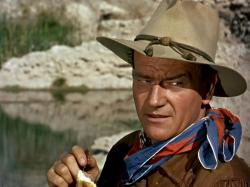
Hondo
1953 -
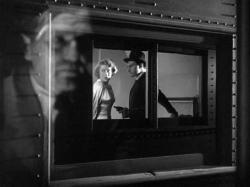
The Narrow Margin
1952 -

Giant
1956 -
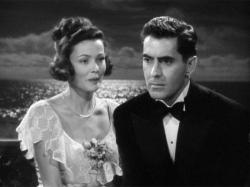
The Razor’s Edge
1946 -

The Desert Song
1943 -
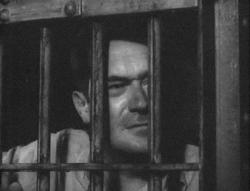
Try and Get Me
1950 -

It
1927 -

Scarecrow
1973 -
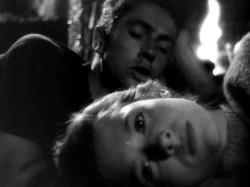
They Live by Night
1948
We don’t do comments anymore, but you may contact us here or find us on Twitter or Facebook.



